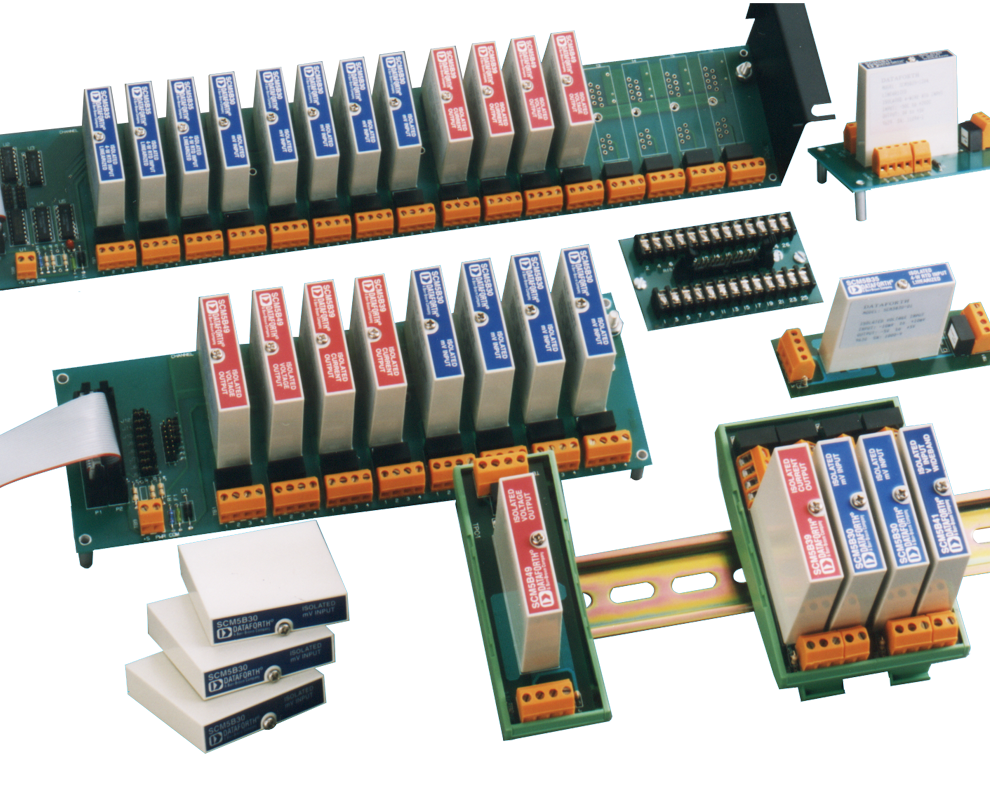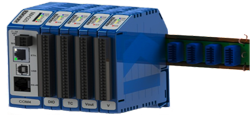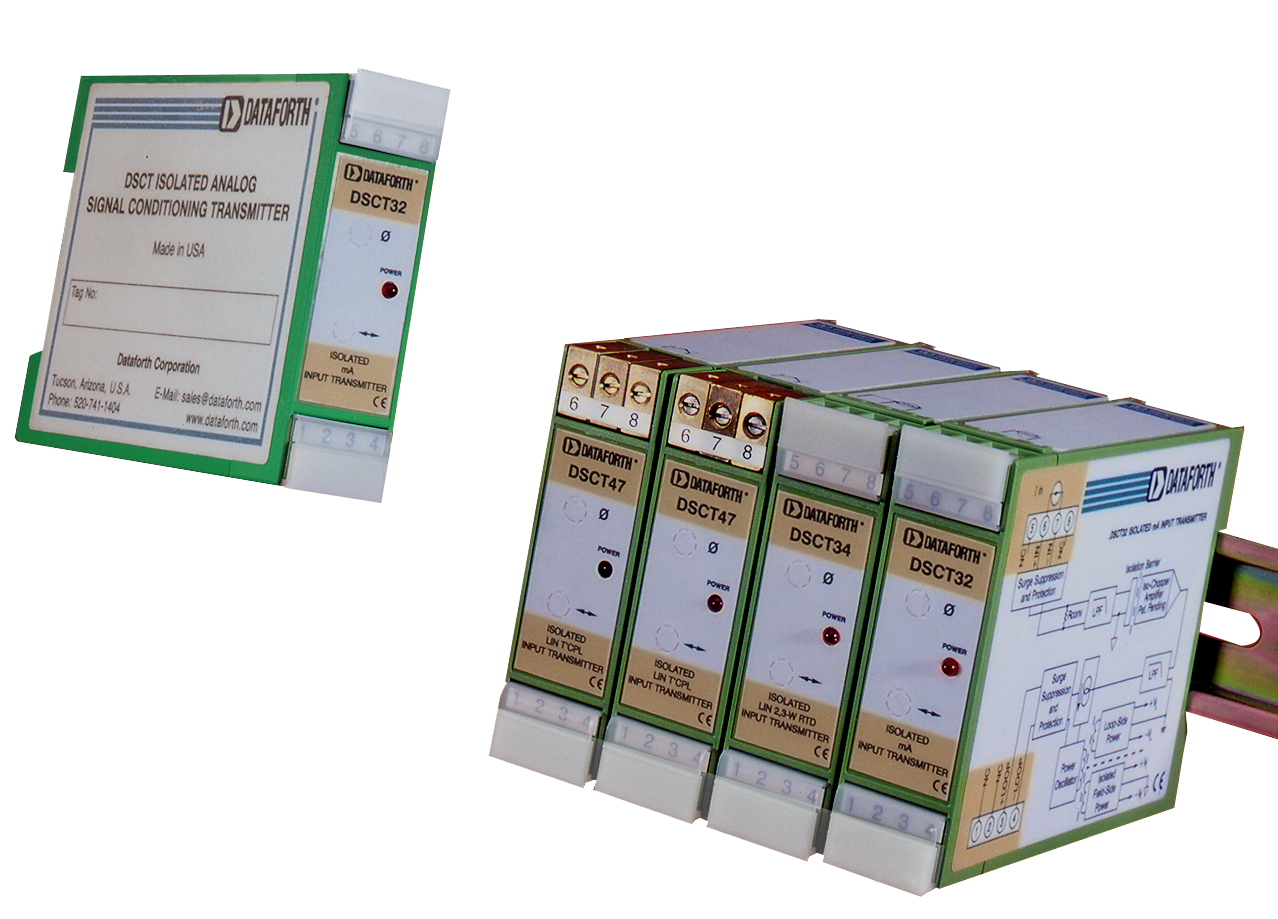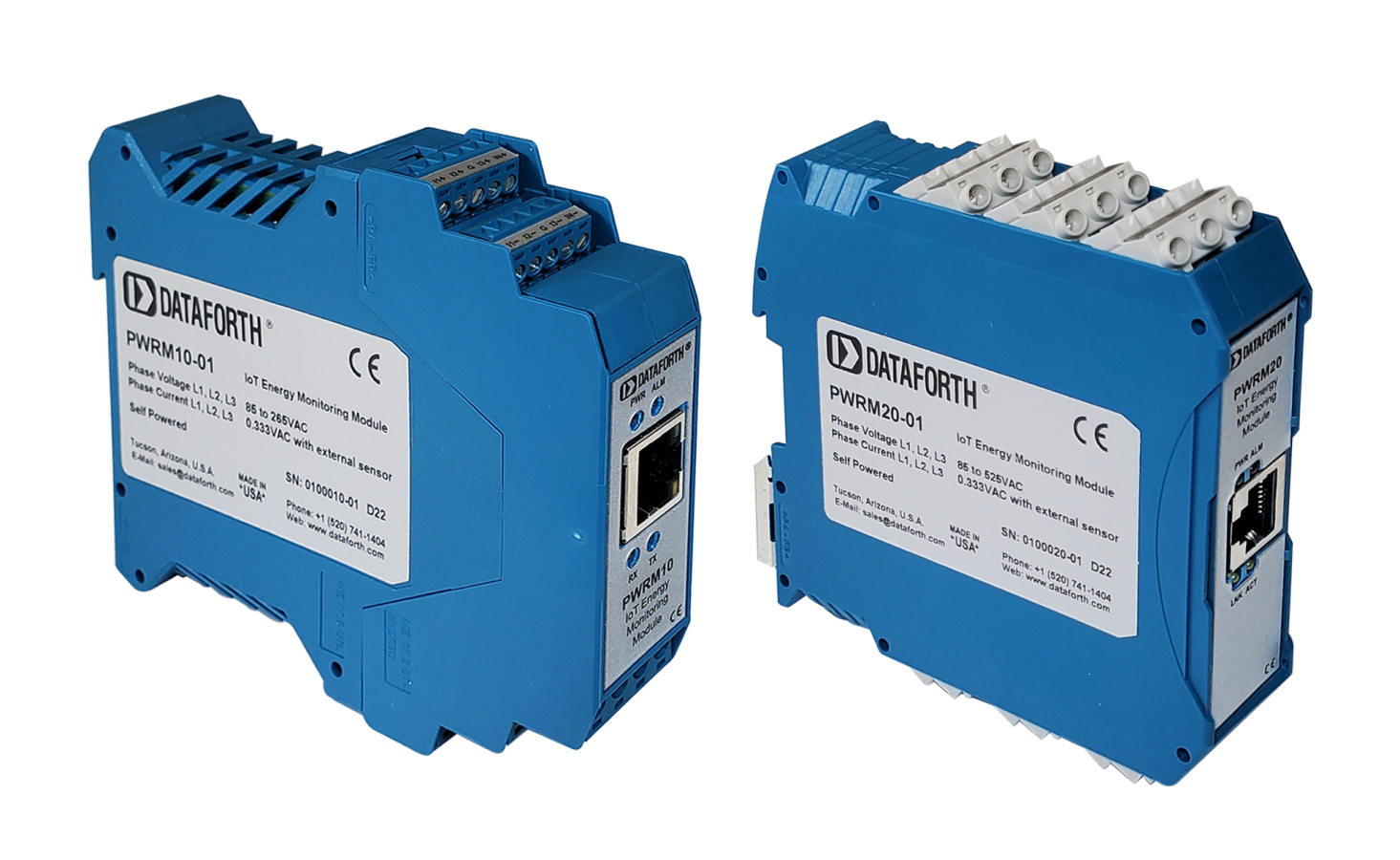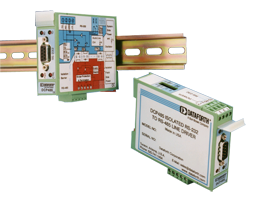Why Isolate Analog Signals?
Tech Note
Isolation Solves Problems
Many of us believe that if we don't have ground loops we don't need to isolate analog I/O signals. Our "Why Isolate" Application Note (AN116) exposes five very real, and very different reasons to isolate every one of your analog signals! If you've had problems on past applications chances are that you experienced one of the following nightmares:
- Signal crosstalk
- Common-mode voltages
- DC common-mode rejection
- AC common-mode rejection
- Over-range and input protection issues
Isolated signal conditioners answer all the problems:
- Three-Way isolation eliminates cross-talk problems
- Dataforth's withstand is 1500Vrms common-mode voltage continuous
- Dataforth's normal-mode rejection exceeds 85dB at 60Hz
- Our common-mode rejection exceeds 160dB at 50Hz or 60Hz
- We provide 240Vrms continuous overload protection, reverse polarity protection, and ANSI / IEEE C37.90.1 transient protection!
For a better understanding of each of these topics and to better protect yourself on your next analog application please refer to this application note (you may also cut and paste the link to your colleagues):
Dataforth's Why IsolateApp Note AN116 (245Kb PDF)
Remember, our Application Engineers can assist you with signal conditioner selection over the phone or via fax and email. Call us at our manufacturing facility in Tucson at 520-741-1404 (fax 520-741-0762) or Email us at support@dataforth.com.


